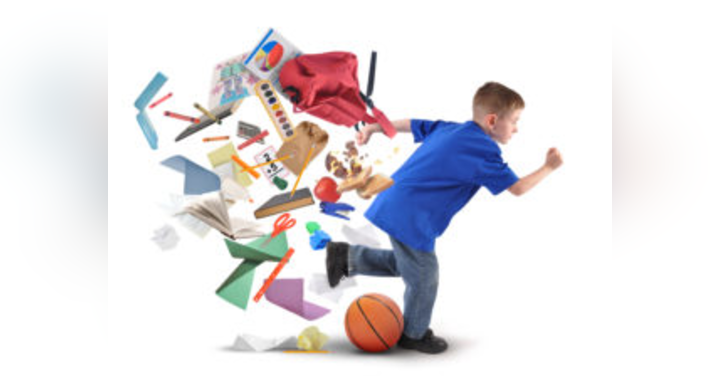Your Element – The Genie in Us (genius) by Terri Novacek

It is one year since our local schools and businesses closed or changed their operations in response to the COVID-19 pandemic. The battle of when and how to open our schools continues, and the concern over learning loss looms. I cannot help but wonder, where do we stand as a society that responds like deer in the headlights when schools close? Why are we just accepting “learning loss” as something out of our control? We figure out a way to feed ourselves, maintain our appearance, and shop for supplies during a shutdown. Why can’t we figure out a way to make sure our children learn? Why is the education of our children not as big, or bigger, a priority than our take-out food delivery, our hair and nails, and our toilet paper supply? Could the answer be that we have gone off the tracks in recognizing what learning is, who should drive it, and where it needs to take place?
At the risk of oversimplifying it, the key components for authentic learning are a prepared environment, uninterrupted work periods, cross-age interaction, and choice. While a school building might provide access to a trained facilitator, specialized materials, and peers, there is no reason some form of each of those components cannot be arranged at home. We should be careful not to mistake “different” for “loss.”
How important is it that every person master high level algorithms, a fifteen page research report, literary analysis, the periodic table of elements, and details of the Civil War? Could American citizens function together as a peaceful and productive society if we didn’t? I believe we could. In fact, I would challenge that we would do so better than we are now. Because let’s face, not every adult has mastered those things, yet we all still manage to function as a society. Are we a peaceful and productive society? I guess that depends on how you define it; although, I think we can all agree, the issues we face in our society today are greater than inconsistent mastery of content area standards in school.
We are living in a time of academic inflation. With the prevalence of students cheating on tests, parents buying grades, and the pressure on teachers to produce “high achievers,” the report card has as much value as counterfeit money. Add to that the idea that everyone needs to go to college, and now you have degrees for everyone and everyone out of work. The majority of today’s educators have been formally trained to drill students with facts, not empower them to think. We micromanage what, when, and how to learn and then expect our protégé to possess the skills necessary to think on their own and solve new problems.
If we spent less time forcing conformity, we would actually experience a higher level of it. Are there foundational skills everyone should possess for the betterment of themselves and society? Absolutely. Let’s take abstract thinking, for example - the ability to analyze information and recognize patterns and relationships. I would defend this is an important skill everyone should possess. We need it for good decision-making and problem-solving because, well, our lives are filled with decisions and problems. But is it important that everyone learn those skills by working mathematical algorithms AND engaging in literary analysis, or could each develop those skills by just focusing on areas of interest? What if someone was more drawn to the culinary arts? Could the person not develop those same skills following, analyzing, and experimenting with a recipe?
There is a fable, The Animal School*, that has been around for decades. It is popular with a lot of educators. Personally, I think an entire teacher training course should be designed around it (Side note: Element Education is currently doing this). It’s interesting. I see teachers read the fable and nod in agreement that everyone has different talents, but then they go back to teaching their ducks to run. For some reason, we can’t seem to help ourselves. (*The Element Education version of this fable is available as a handout on this website).
Looking for My Element in All the Wrong Places – Joy is key
Learning is organic and requires an ecosystem. Our relationship with ourselves, each other, and the notion of learning all play a role in our beliefs and experiences. Each of us requires slightly different supports and environment. When we see a plant struggling to grow, we change the conditions. Like all parts of nature, people flourish in an environment which suits them best.
Sir Ken Robinson, author of THE ELEMENT: HOW FINDING YOUR PASSION CHANGES EVERYTHING, describes your element as that place where your natural aptitudes meet your passions. It is possible to have more than one element, as we possess many aptitudes. Your element evolves as your talents mature and interests change and broaden.
There are two types of talent. One is aptitude, that natural born talent which comes easy to you that others might struggle with (reading, music, building, designing, public speaking). The other is ability, that which is nurtured and developed with practice. I hypothesize that if formal education focused more on guiding students to find their element and less time trying to fit everyone into the same mold, we would find rates of depression, addiction, suicide, hatred, and violence drop considerably.
The key to learning is not knowing what to learn, but knowing your world, both within and beyond yourself. Being aware of your dispositions, preferred modalities, interests, talents, and ideal learning environment puts you on a more efficient and effective path to learning what you need and want. The world beyond you, people, events, and circumstances, are what you know from your own perspective. Too often, information comes to us from another person’s perspective, and we forget to take that into consideration. As such, we need to expand our knowledge and experience with the outer world to develop skills which expand our inner world.
Self-determination theory, a term coined by Educational Researcher and Professors Edward Deci and Richard Ryan in 1985 explains that more than any external factors, including a paycheck, the best motivators are a sense of autonomy, competence, and relatedness. Self-determination occurs when one chooses to take action and make things happen, rather than being acted upon.
Daniel Pink wrote a book based on the Deci-Ryan study called DRIVE - The Surprising Truth About What Motivates Us. He describes the human need to direct our own lives, learn and create new things, and do better. In other words, to find our element. In 2000, Steward Hase coined the term heutagogy which refers to self-learning independent of formal teaching. Again, the path to finding your element. Just last year, Michael Wehmeyer and Yong Zhao published TEACHING STUDENTS TO BECOME SELF-DIRECTED LEARNERS. And…once again…finding your element. So, why after more than 35 years of research which continues to identify mastery, autonomy, and purpose as driving factors of motivation have we not done more to ensure our young learners are learning in environments which provide that? I have my theory, but I can’t think of a nice way to say it, so I will keep it to myself…for now.
Given the Circumstance – Integrating interests and talents with life
We must be willing to challenge assumptions, both our own and others. When you think of intelligence, societal status, beauty, creative talent, does your opinion of yourself come from within, or from the influence of others? We have had a lot of time in the past year to spend time with ourselves, to turn off the external opinions and pressures of what society needs us to learn versus what we want to learn. As you look back on the past year, what did you choose to do with your time, circumstances, and personal growth? Did you use the current state of affairs to reflect and stretch yourself, or did you shut down? In what ways were you able to make lemonade from the pile of lemons?
You can handle the truth – Even if it means changing course
Finding your element is not something that happens overnight. It is a journey, and the more you follow others aimlessly, the further you steer off course. Habits such as meditation, journal writing, meeting new people, visiting new places, and engaging in new experiences help broaden perspective while helping us to get in touch with ourselves as well. Find ways to engage in real-world projects, collaborate with peers, and seek new opportunities. If you don’t take the lead with your life, someone else will. While it might sound great to have someone else do all the work, keep in mind that by doing so, you are limiting your freedom and squandering the gifts within you.
Often our image of what will bring us happiness are illusions. When we aren’t honest with ourselves and others about who we are, we set ourselves up for a life of constant turmoil. Like a duck pretending to be a sprinter to fit in with the roadrunners and forgetting his gift as a swimmer, we are not ourselves when chasing the higher title, larger paycheck, or lifestyle of the Joneses..
Ask yourself, “What is my belief about myself, others, and my ability to learn? What do I want it to be? Do my actions support my desires? If you want something different, you must do something different. When and how might you change your world whether as a student, parent, teacher, superintendent, supervisor, community member, life partner, or friend to put yourself in your element?
Take a moment to sit alone in an area where you can reflect and describe the quality of your life. It can be a scale of one to ten, a general statement, a paragraph…whatever works for you. Generally speaking, how would you rate the quality of your life and why? Then create three columns and in the left one list the things you are good at, in the middle list the things you enjoy, and in the third one list the things you wish you had more time or resources to develop. Now, let’s assume you have a say about your life, what comes to mind for you as next steps as you compare those three columns? Although feeling you are doing something meaningful doesn’t guarantee happiness, it tends to be difficult to find happiness unless you feel that what you are doing has meaning. In what ways can your interests and talents collide to bring more meaning and help you operate…in your element?







